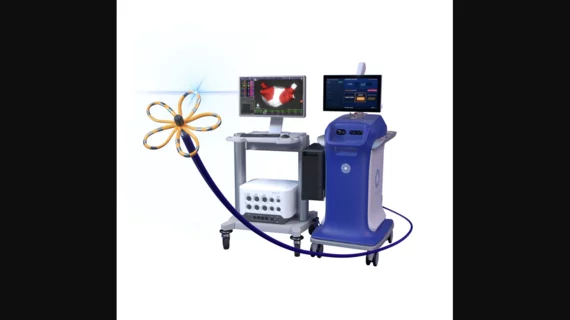Boston Scientific scores 2 key FDA approvals for PFA mapping technology
Boston Scientific has received U.S. Food and Drug Administration (FDA) approval for its Farawave Nav ablation catheter for the treatment of paroxysmal atrial fibrillation (AFib) and FDA clearance for its new Faraview software. The two technologies are used together to deliver visualization during cardiac ablation procedures performed with Boston Scientific’s Farapulse Pulsed Field Ablation (PFA) System, which first gained FDA approval back in January.
The Farawave Nav ablation catheter was designed with magnetic navigation features that enable cardiac mapping and PFA delivery with a single catheter. Meanwhile, the Faraview software tracks each movement of the Farawave Nav, helping users know exactly where treatment has occurred.
“In clinical use, the Faraview Software and Farawave Nav Ablation Catheter produced detailed cardiac maps that could improve guidance, limit fluoroscopy times and assist physicians in assessing the location of energy delivered during PFA procedures,” Vivek Reddy, MD, director of electrophysiology at Mount Sinai Fuster Heart Hospital in New York, said in a prepared statement. “The addition of navigation and visualization capabilities to the Farapulse PFA System could aid workflow efficiency and enhance the treatment physicians can provide to patients living with AFib.”
Reddy is a known leader in PFA research and served as principal investigator of the ADVENT clinical trial, which compared treatment with the Farapulse system with radiofrequency and cryoballoon ablation.
Cardiovascular Business spoke with Reddy at ESC 2023 about the ADVENT trial. He emphasized PFA’s potential to transform the future of electrophysiology.
“My own opinion is that PFA will be the workhorse technology we use ... my guess is that once it is approved in the United States, it will likely be utilized quite extensively,” he said.
Boston Scientific is immediately launching both the Farawave NAV ablation catheter and its Faraview software.

